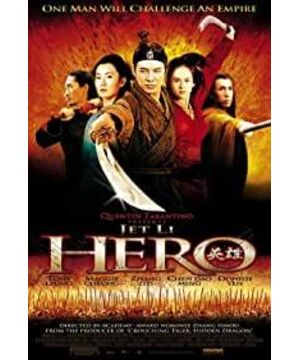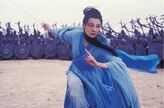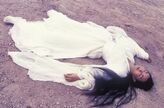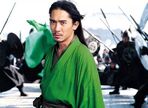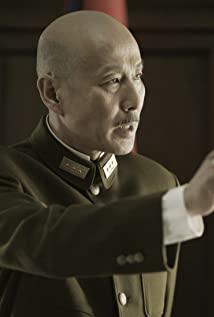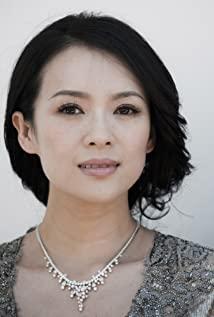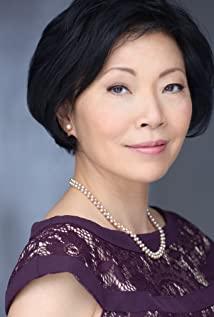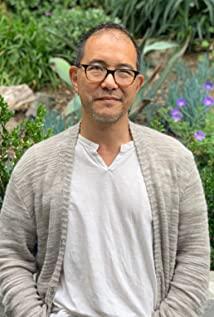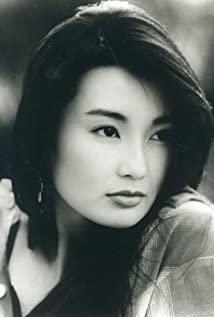The prototype of the story of "Hero" is that Jing Ke stabbed Qin. Jing Ke, a masterpiece of assassins in the Spring and Autumn Period and the Warring States Period, has been sung for thousands of years and regarded as an unyielding idol. However, in this story, Zhang Yimou pushed to Jing Ke's inherent image and created another assassin - Wuming.
This storytelling technique draws on Kurosawa Akira's "Rashomon", which is to tell and beautify a story for his own use in order to achieve his own purpose. The three primary colors red, blue and green and the opposing black and white form the basis of this story. And what I want to discuss is the one that has been criticized by many people, that is, the word "world" written by Can Jian and finally implemented by Wuming. And behind this meaningful "world", the word "harmony" stands firmly. I use this image of Jing Ke as a starting point. When we were young, the conclusions that textbooks gave to Jing Ke were the embodiment of resistance to violence, but gradually there were some different voices towards Jing Ke. These voices criticized Jing Ke's attitude, and felt that the unified China by King Qin was historical progress and an opportunity to end hundreds of years of war. Jing Ke's move is to face the chariot of history. If the King of Qin was really assassinated by Jing Ke, it would delay the unification of China for many years and cause even greater disaster to the people on the whole. Mencius said, "There is no righteous war in the Spring and Autumn Period." In fact, it goes beyond the Spring and Autumn Period. In the long history, which war is absolutely just? Even in those wars against aggression, ordinary people suffer. But these wars are necessary and necessary means for historical development. Speaking openly, it is the so-called for the overall situation.
I originally thought that the term "hero" and "harmony" were necessarily contradictory. As the saying goes: "Heroes in troubled times". It is precisely in the most discordant and troubled times that heroes are born in large numbers. The strange thing is that the heroes in "Heroes" all fell down after they moved towards "harmony". The only one left in the sky to abandon the martial arts. Only the king of Qin who was created, the one who wanted to implement "the world" still exists. What Zhang Yimou wants to tell us is two kinds of heroes. One is the small righteousness of the Jingke style, and the other is the great righteousness of the king of Qin. When Xiaoyi and Dayi had a fierce confrontation, Xiaoyi finally succumbed to Dayi, and Wuming symbolically turned the sword upside down, which also symbolized the assassin's change of role and became a chivalrous man. Jin Yong said: "The great hero serves the country and the people." What is intriguing is that Wuming gave up assassinating King Qin, but King Qin shot Wuming with random arrows. This is also the embodiment of the most violent spirit of the overall situation, and is an important factor in criticism. Although the nameless death is inevitable, the meaning extracted from it is difficult to accept. For the sake of the overall situation, Wuming, who became a chivalrous man, met a dictatorial king of Qin.
"Hero" is a "harmony" mirror. The appearance of nameless just means that the world is full of power. And Wuming is the one who rebels against power. Wuming has been practicing that trick for ten years, just to assassinate the King of Qin, but there is no Yan Taizidan, good wine, good meat, and beautiful dancers. He just resisted to fight against the power, like a symbolic hero, trying to achieve his purpose with something pure. The so-called King Qin in "Heroes" is a beautified historical image, as a hero who is relative to the nameless. Hundreds of years of continuous war gave birth to such a hero, a hero born from hundreds of years of turmoil and hundreds of years of anticipation. However, when Wuming and King Qin went head-to-head, the two heroes were full of contradictions. It represents the contradiction between the powerful and the powerless. The contradiction between them is undoubtedly the contradiction represented by that era, the most representative contradiction between different positions and interests, and the appearance of the world.
If the King of Qin wanted to end the war, he had to pacify the six kingdoms, so much so that all life was ruined. Wuming wanted to resist the violence, so he wanted to assassinate the King of Qin. This is the inevitable choice for them to appear as heroes. The concept of hero, like good and evil, beauty and ugliness, will not be constant. If it is placed in a different moral system, there will be unacceptable conclusions. King Qin wanted to unify and conform to history, so he was a hero. And for those people who died under the unified iron cavalry of the Qin state, he was a cruel and inhumane demon. And Wuming is the hero before those weak countries, but it does not conform to the law of historical development. So in "Heroes", there are no villains, all heroes. He tried in vain to let the audience find a sense of identity in their favorite heroes, and finally covered up those sharp contradictions.
It's a pity that there's something flattering about the finale. Wuming did not assassinate King Qin in the end, which was like a metaphorical knee on the ground. The most unacceptable is the nameless death. I can't help but think of Wuming saying to Ruyue: "People have to die properly". So if you are pierced by thousands of arrows, will you really die? Wuming is dressed as a chivalrous man by the film, and then forced to accept a robber logic, seemingly dead. This interpretation is difficult to convince in today's society. Zhang Yimou wanted to reconcile all unresolvable contradictions by means of Tai Chi, but aroused the indignation of many people. Because today's society has too many rights to rely on the excuse of "the world" for the overall situation, it is inevitable to sacrifice the interests of many people. The film educates us not to use violence to resist the powerful, but to use behavior to influence the ideas of the powerful. This method is really naive. So it's no exaggeration to call it a main theme film. It is also the fuse for Zhang Dao and intellectuals to fight against each other.
Looking back at Heroes years later, this Harmony mirror is even more outrageous. In today's deepening contradictions, many things cannot be settled by "the world" at all. The more you advocate "the world", the more things will go downhill. It is true that Director Zhang has profound skills and the film is excellent in many aspects, but the spirit in it is difficult to accept easily. The next heavier conclusion is that "Hero" is just a colorful film of the history textbook!
View more about Hero reviews


